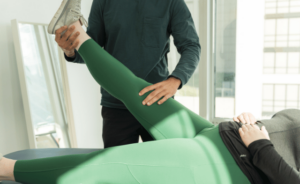Introduction
This comprehensive post delves into the prevalent vestibular disorders, their symptoms, and the significant role of vestibular physiotherapy in offering relief and enhancing quality of life.
For Vestibular treatments, we recommend the following:
Understanding Vestibular Disorders
The vestibular system, integral for balance and spatial orientation, can be prone to various disorders. The most common include Benign Paroxysmal Positional Vertigo (BPPV), Meniere’s disease, labyrinthitis, and vestibular neuritis, each presenting unique challenges to those affected.
1. Benign Paroxysmal Positional Vertigo (BPPV):
Characterized by brief episodes of dizziness or vertigo triggered by head movements, BPPV is a common vestibular disorder.
Symptoms:
- Short-lived vertigo, typically lasting less than a minute.
- Nausea.
- Balance issues with specific head positions.
2. Meniere’s Disease
A chronic condition, Meniere’s disease affects the inner ear, leading to episodic vertigo, hearing fluctuations, tinnitus, and ear fullness.
Symptoms:
- Intense, spontaneous vertigo episodes.
- Hearing loss that may vary.
- Ringing or buzzing in the ear (tinnitus).
- Feeling of fullness in the ear.
3. Labyrinthitis and Vestibular Neuritis
These conditions involve inflammation in the inner ear or vestibular nerve, leading to vertigo and balance disturbances.
Symptoms:
- Sudden, intense vertigo.
- Difficulty maintaining balance.
- Nausea and vomiting.
- Hearing loss (primarily in labyrinthitis).
Benign Vestibular Physiotherapy: A Path to Recovery
Vestibular physiotherapy, a specialized form of therapy, is instrumental in treating these disorders, involving exercises and maneuvers to retrain the brain in processing signals from the vestibular system.
1. BPPV Treatment
For BPPV, therapists use maneuvers like the Epley or Semont to reposition dislodged crystals in the inner ear. These are often effective immediately.
Case Study:
John, a Vancouver-based professional, experienced sudden vertigo episodes. Diagnosed with BPPV, he underwent the Epley maneuver, resulting in rapid symptom resolution, allowing him to resume his active lifestyle swiftly.
2. Rehabilitative Exercises for Meniere’s Disease
Meniere’s disease treatment includes exercises to enhance balance and strategies to manage vertigo.
Case Study:
Emily, a teacher in Vancouver, managed her Meniere’s disease symptoms through customized vestibular rehabilitation, focusing on balance training and lifestyle adjustments. This approach led to a marked decrease in her vertigo episodes, significantly improving her daily life.
3. Labyrinthitis and Vestibular Neuritis Management
Treatment involves adaptive exercises to help the brain adjust to changed vestibular inputs, gradually alleviating symptoms.
Case Study:
David, 50, struggled with daily tasks due to labyrinthitis. Vestibular rehabilitation exercises enabled him to regain his balance and confidence, gradually resuming activities like hiking Vancouver’s trails.
Extending Beyond Exercises: A Holistic Approach
Vestibular physiotherapy is not just about physical exercises; it encompasses a holistic approach, including lifestyle modifications and educating patients about their condition, empowering them for better symptom management.
Preventative Measures and Maintenance
Maintaining vestibular health is key. Regular exercises that challenge balance, like yoga or tai chi, and a healthy diet can prevent or mitigate the effects of vestibular disorders. Additionally, avoiding sudden head movements and staying hydrated are simple yet effective strategies.
Wider Community Impact in Vancouver
The success of vestibular physiotherapy is evident in numerous Vancouver residents who have regained their balance and confidence. These stories not only highlight the method’s effectiveness but also its impact on enhancing the quality of life.
Conclusion
Vestibular disorders, though challenging, can be effectively managed with the right treatment and support. Vestibular physiotherapy offers a comprehensive path to recovery, enabling Vancouver residents to enjoy a balanced and fulfilling life, free from the constraints of these conditions.






